With 2020 kicking off a new decade, we took a walk down memory lane to revisit some of the highlights of the last ten years and consider how CPSE has changed and morphed over that time.
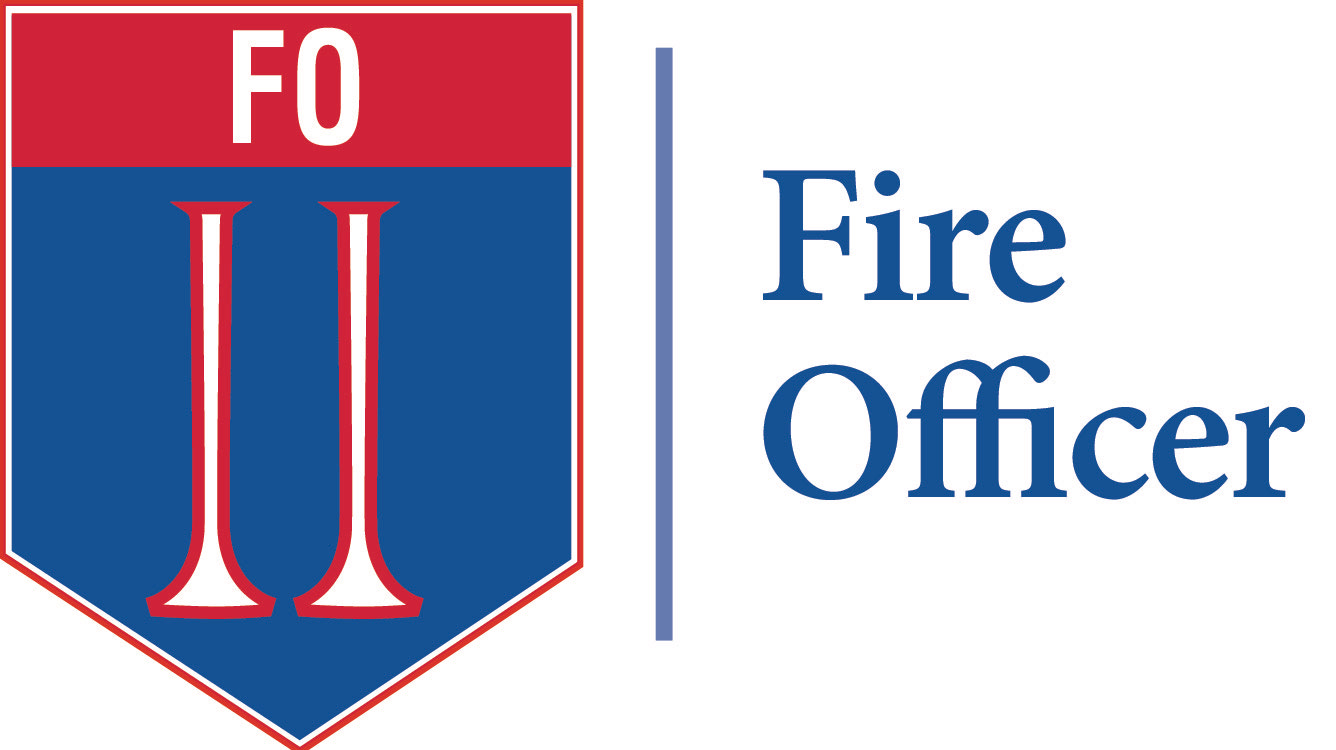
2010
Wishing to extend our professional designation model to all officers, in 2010 the Commission on Professional Credentialing (CPC) launched the Fire Officer (FO) designation. With that decision all junior or company officers could have their career excellence recognized and develop strategies for continuous personal improvement. Growing from just a handful of original designees, the program now boasts 507 Fire Officers, becoming the second highest group of designees. In 2020, CPSE will celebrate the 10th Anniversary of the FO program.
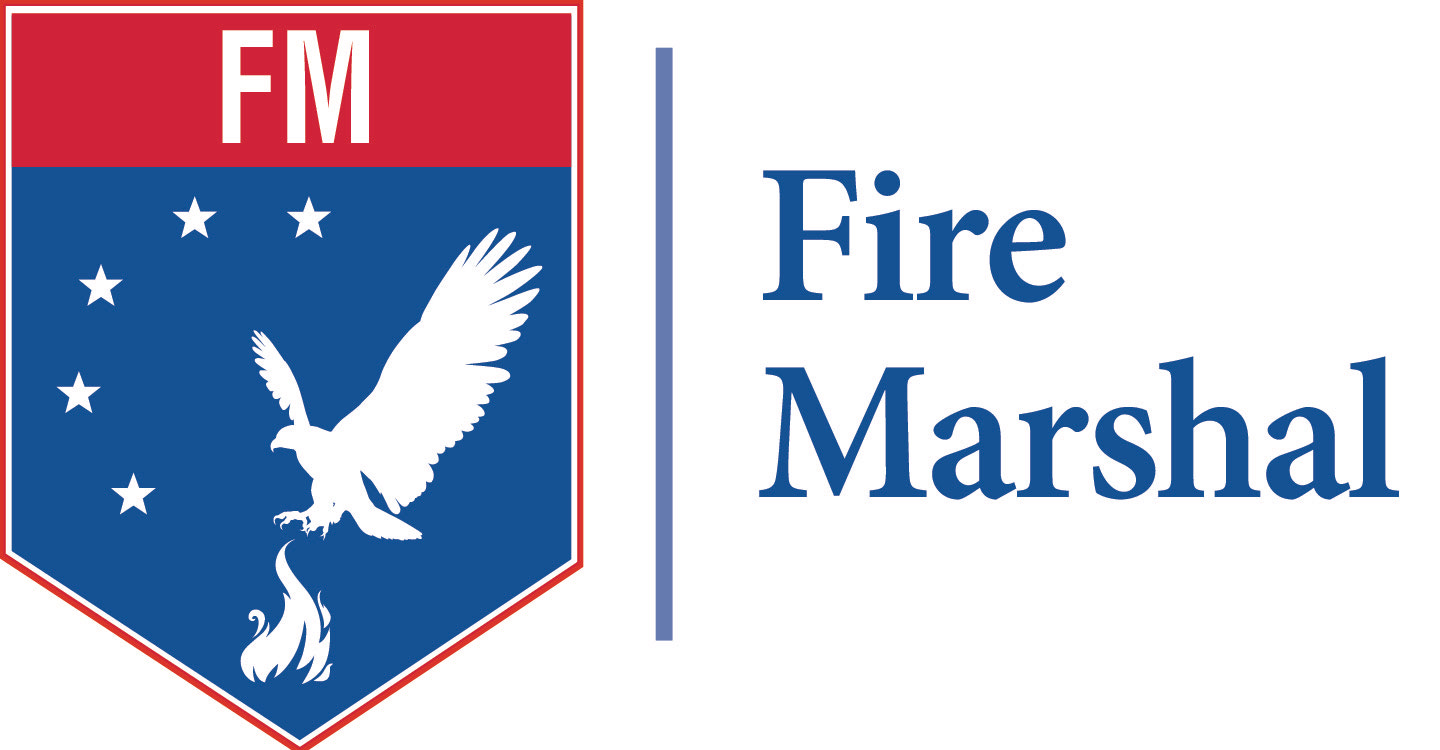
2011
As the fire and emergency service continued to diversify, so did our programs. In 2011, CPC launched the Fire Marshal (FM) designation. Like our other programs, the FM program was a career enhancement and development model that focused on fire prevention and related technical competencies. Around the same time, CPC increased its size adding a spot specifically for those with fire prevention expertise. Standing at 166 designees today, FM is now our third most popular program.

2012
During the 2012 Excellence Conference, CPSE held our inaugural fundraiser for the National Fallen Firefighters Foundation (NFFF). CPSE’s partnership with NFFF has grown significantly over the years, with both the CPC and CFAI models providing a crosswalk to NFFF’s 16 Fire and Life Safety Initiatives. Building on the fundraising success of that first event, CPSE continues to hold a fundraiser during our annual Excellence Conference. Last year, we raised approximately $6,500 to support the Foundation’s efforts at helping the families of firefighters that have fallen in the line of duty.

2013
In 2013, CPSE held Excellence Conference in Nevada for the second year in a row. The theme of that year’s conference was to Strive for Excellence, Focus on Quality, and Deliver on Outcomes. Ernie Mitchell, then U.S. Fire Administrator, and Dr. Denis Onieal, then National Fire Academy Superintendent, served as keynote speakers. By then in its third year, the Excellence Conference grew to 200 attendees. Those attendees experienced thought-provoking education sessions and multiple opportunities to network. Twelve agencies came before the Commission on Fire Accreditation International (CFAI) during the accreditation hearings. By the end of the decade, conference attendance would more than double and agencies appearing before CFAI would triple.
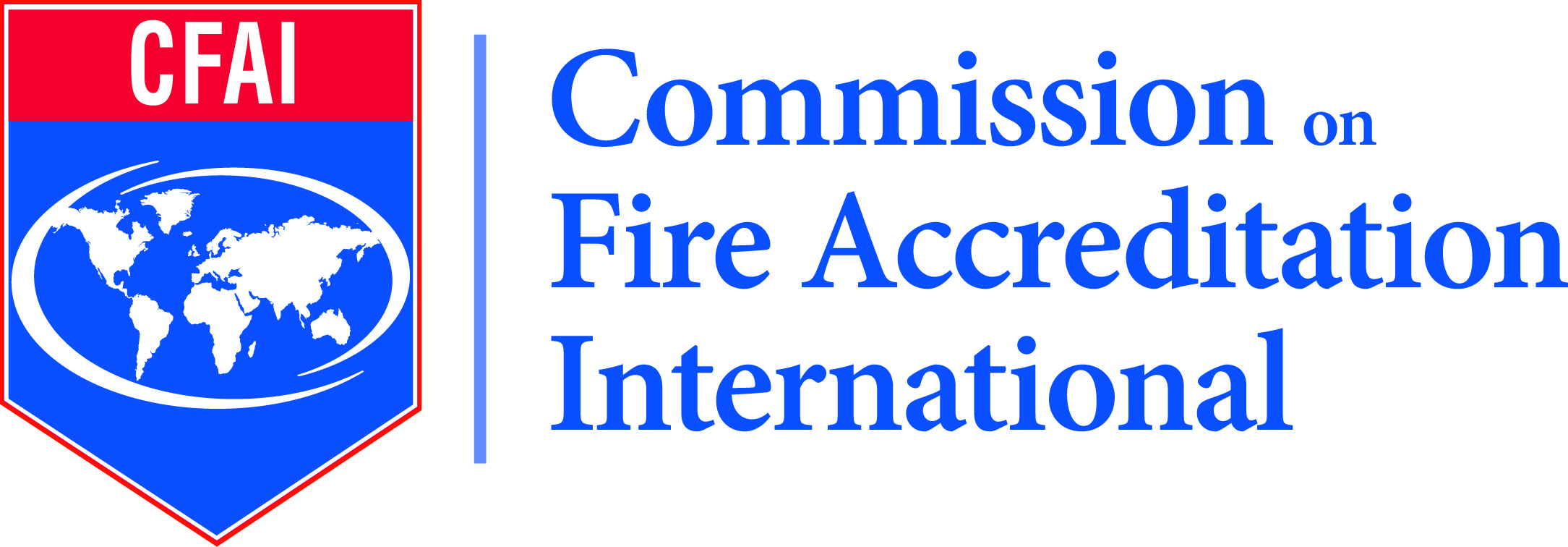
2014
In 2014, CFAI kicked off the Reimagining Project. Rather than a simple accreditation model update, the ambitious goal of that project was to consider every facet of the CFAI model and process and to ensure they continued to push for excellence in the industry. A Steering Committee oversaw the project and four dedicated individuals led the review and update efforts. CFAI conducted its first ever public comment period of the recommended changes and received almost 1,000 responses. In subsequent years, the 9th edition Fire and Emergency Self-Assessment Manual and 6th edition Community Risk Assessment/Standards of Cover would be published.
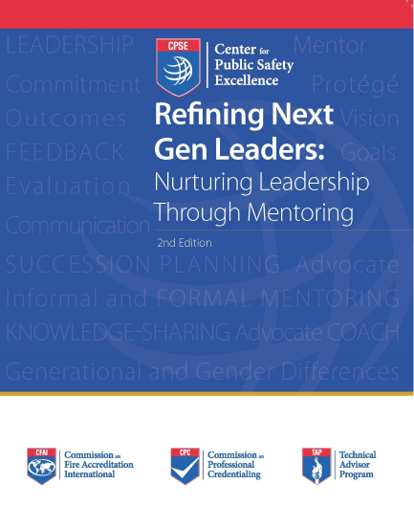
2015
Recognizing the pending mass retirement of fire and emergency service personnel and with their departure the loss of significant institutional knowledge, in 2015 CPSE published Refining Next Gen Leaders: Nurturing Leadership Through Mentoring. A group of eight professional development and mentoring experts worked to develop a publication that would promote professional growth and enhance generational transfer of knowledge. It also outlined the benefits of a structured mentoring program and highlighted generational and gender differences within the modern fire and emergency service. A new in-person workshop was developed to complement the publication. CPSE continues to offer the publication and associated course to progressive agencies and officers.
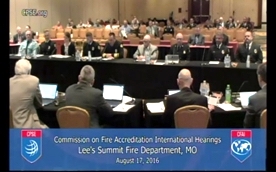
2016
CPSE pledges to lead transparently as part of our core values. In 2016, we put this into action by beginning to webcast our CFAI hearings. We recognized that an agency’s accreditation team is far greater than the fire chief and accreditation manager, who typically attend the hearings, and wanted to provide the larger team the ability to watch the hearings live from the comfort of their department. That first year, we had approximately 1,300 viewers over three days of hearings from almost every state and province in North America and even some viewers from Asia and Europe. CPSE has continued to webcast the hearings learning from our agencies that they are a great way to celebrate with and learn from their peer departments sitting before the commission.

2017
2017 brought a major milestone for CPC as it awarded its 2000th designation. Beginning with only 17 designees in 2000, it grew to 1,000 in 2012 and quickly doubled to 2,000 by 2017. By this time, CPC offered five distinct designations covering the various levels and specialties of fire officers and was overseen by an eleven-member commission representing a cross-section of the fire and emergency service. CPC continues to grow closing out last year with 2,388 designees.
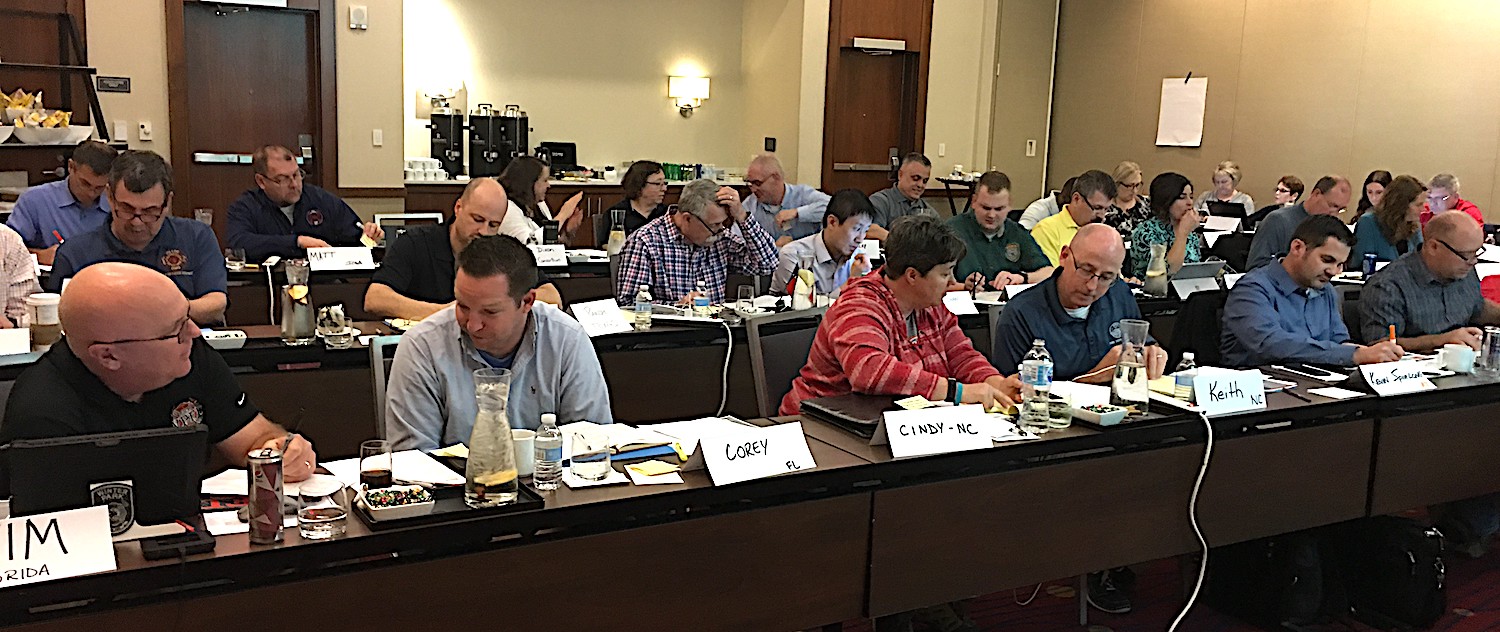
2018
For an agency considering accreditation or an officer contemplating credentialing, a local consortium may be their first contact with CPSE. In 2018, we held our first-ever consortium coordinators workshop. Wanting to ensure our consortiums were operating effectively and felt supported, we brought the coordinators (and co-coordinators) of the then 15 state and regional consortiums to the DC metro. Over the day and a half workshop, the coordinators learned how to develop/improve their consortium’s mission and goals, member recruitment and retention efforts, communication strategies, and meeting planning and execution processes. CPSE continues to hold regular check-ins with the consortium coordinators and has seen ongoing growth in the number of state and regional consortiums.

2019
To more fully address the education part of the CPSE mission, in 2019, CPSE University was launched. The goal was to develop leaders and guide them on their efforts towards accreditation and credentialing. The public face of CPSE University is a robust learning management system which is supported by new curriculum development, instructional, and delivery methods. CPSE University strives to be adaptive to the challenges to change, encourage growth through a cycle of reflection, discovery, purpose, and sustainability, and embody the mindset of continuous improvement. As CPSE University gets ready to complete its first full year of operation, it looks forward to delivering new content in new ways for the growing CPSE community.
What’ll happen this decade?
The past ten years saw a doubling of the number of accredited agencies from 133 to 270 and a 350 percent increase in the number of credentialed officers from 694 to 2388. The decade would begin with a five-member CPSE board that has since grown to nine members that more holistically represent the CPSE community. We developed and adopted a new strategic plan that would bring with it a new mission of Leading the Fire and Emergency Service to Excellence and a set of new core values: Continuous Improvement, Outcomes, and Progressive Leadership.
2020 brings with it a few milestones: the rollout of the 10th edition of the CFAI model, the 10th anniversary of the FO program, and the potential for the first 500+ attendee Excellence Conference.
Who knows what’s in store for the rest of the decade. Stay tuned to CPSE corner and our Facebook, Twitter, and Linkedin to find out.
